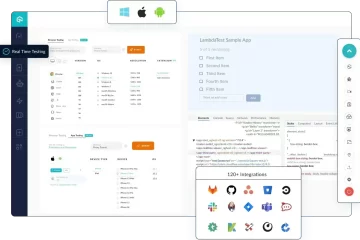What Will the Future of the Internet Look Like?

Origins of the internet – Future of the Internet
The infancy of the internet is really not that long ago. In the 1950’s, the U.S. Department of Defence began transmitting data from one computer to another allow several to communicate on a just one network. This was the first step on the way to what we know as the internet today. – Future of the Internet
In 1960’s the first message was sent from one computer at UCLA to another located at Stanford University. Although it cannot be described as a resounding success given that the system crashed resulting in only the first two letter of the single word message “Login” could appear on the screen. But it was a first, and a strong sign of the possibilities to come.
Moving into the 1990’s is when the wider population began to first experience the internet at work or at home. The dial up tone will be engrained in the memories of those of a certain generation and it was certainly not aimed at the impatient such was its lack of speed.
Many were sceptical
It was no wonder then that the internet had its sceptics. Many did not believe that it could replace the daily newspaper as our news source, or that we would no longer require a CD player. Not to mention that we would not carry almost all of our most vital information on our mobile phones.
Societal changes
But this is exactly what happened. The internet has reinvented the way we live our lives, the way we work, how we engage with other and how we spend our free time.
We are now communicating in ways like never before through messaging app and social media platforms. It has reshaped the way in which we consume news, with printed newspaper sale in rapid decline since the noughties. We live in an era of digital news, blogs and news aggregators. There is the possibility to work and learn from remote, and shop from the comfort of our homes.
Streaming services provide on demand TV shows, movies and music. The internet provides us with endless opportunities for entertainment through video and online games, such as puzzles, simulation, sisal aviator and roulette.
Looking to the future
When we reflect on all the developments in technology to date, it can be difficult to know what could possibly come next. But here are some potential developments in the future:
- Accessibility
Given that many devices are touch screen or voice activated it is within reason to believe that computer hardware that already exists such as large screen, keyboards and the mouse will become obsolete.
These changes have already begun. Take for example the virtual assistants like Amazon’s Alexa and Apple’s Siri. Using these you can make calls, send messages, check the weather or play a song all with your voice alone.
It seems the future of the internet will be fully integrated with the real world.
- Health monitoring
Another area where the internet would provide great improvements in the future is that of health monitoring.
Physical fitness watches are already popular among people to monitor heart rate, daily steps and sleep quality. The sync to a mobile phone to provide data over a period of time.
Imagine if we could build on this technology to develop wearable or implanted sensors that could control levels of glucose or check blood pressure and organ health. It would offer an innovative way of monitoring health and reduce the pressure on healthcare systems.
- Augmented reality
Augmented reality (AR) is an interactive experience within a real-life environment. The technology provides other sensory stimuli through visuals, sounds and smells to enhance the experience.
It is already being used within mobile technologies but its possibilities in the future are endless and hugely beneficial to society.
In the area of healthcare, it will be possible to prepare and practice surgical procedures. This will be especially useful for training future surgeons and providing opportunities to practice as close to the real thing as possible.
AR will enable flight students to learn how to take off, fly and land an airplane through the use of a simulator.
With an ever-increasing world population, careful and strategic urban design and planning is essential. AR will allow engineers and architects to place plans in situ in order to fully visualise the project from the outset. The future uses are endless.
Finally
These are just some of the future possibilities, there really is no predicting where the internet will go from here. Given the advancements that most of us have already witnessed, one thing is for sure, it will be bigger, faster and more dynamic than before.








